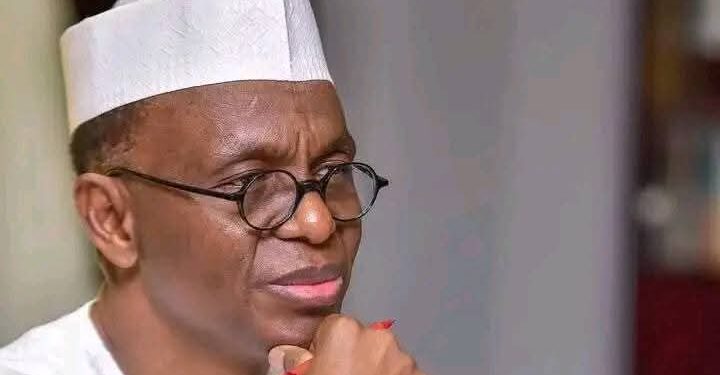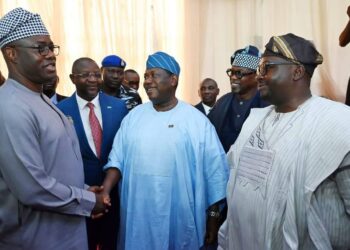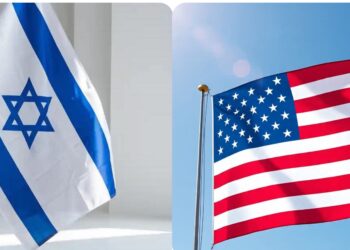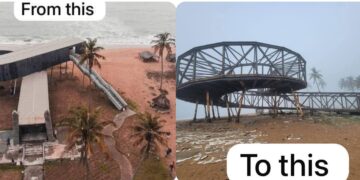Kaduna’s once-feared strategist faces rejection and ridicule inside a party he cannot call home.
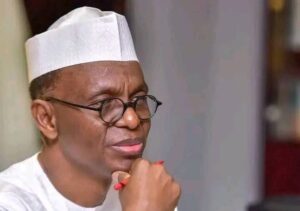
By Ibrahim Kegbegbe
When former Kaduna State governor Nasir Ahmad El-Rufai took to his X (formerly Twitter) handle early hours of today, Thursday, 21 August, to distance himself from statements attributed to him by a faction of the African Democratic Congress (ADC), it was more than a simple rebuttal of fake news. It was a window into a deeper tension between the outspoken politician and the party he has, in recent months, flirted with but never fully embraced.
El-Rufai wrote pointedly to ADC Vanguard:
“Please stop fabricating statements and attributing them to me… I will disown the statements you created and attributed not because I necessarily disagree with the message, but because I never made them. That is not the honest way to represent our party or gain traction. Please stop it forthwith.”
This was not the language of a man basking in camaraderie with his new allies. Rather, it sounded like the warning of a guest in an uneasy household.
READ ALSO:Allegations of Corruption Rock FMC Abeokuta: Chief Engineer Accused of Fraud, Misconduct
The Kaduna Bye-Election Lesson
Only a week earlier, El-Rufai had stormed Kaduna’s Chikun and Kajuru Federal Constituency to campaign vigorously for the ADC candidate in the August 16 bye-election. Rallies were held, hands were shaken, and promises were made. Yet, when the ballots were counted, ADC failed to secure a single win in the contested seats. The loss was a stark reminder that El-Rufai’s once-formidable political clout does not automatically translate into electoral dividends for ADC.
For a man once regarded as one of the most strategic politicians in northern Nigeria, the defeat was humbling. It also reinforced the growing perception that his presence in ADC has not galvanised the kind of grassroots enthusiasm the party hoped for.
READ ALSO:How Ex-Provost Secured TETFUND, BPP Approval to Fence Private Estate Under False Pretext
ADC’s Suspicion and El-Rufai’s Dilemma
The bye-election loss came on the heels of internal grumbling within ADC. Barely days before the polls, the party’s Kaduna chapter accused El-Rufai of attempting to hijack its structure through his Social Democratic Party (SDP) loyalists. The state leadership warned that they would resist any attempt to subsume the party under his control.
This suspicion underscores a broader dilemma: El-Rufai has never formally joined ADC, despite campaigning for its candidates. Instead, he hovers as an influential outsider, bringing both the advantage of name recognition and the baggage of mistrust. His formal expulsion from the SDP earlier this year only deepened the question of where he truly belongs politically.
The Image War
The fabricated quotes episode with ADC Vanguard reflects the broader power struggle over El-Rufai’s image. For a politician whose career has thrived on sharp rhetoric and uncompromising stances, being misrepresented by a faction of a party he has not officially joined was both embarrassing and damaging. By publicly rebuking the group, he sought to reclaim control of his voice. But the episode also revealed that within ADC, factions are willing to use his name to score political points—even without his consent.
A Party Too Crowded for Comfort?
The situation leaves El-Rufai at a crossroads. On one hand, he has the charisma and record to energise opposition politics. On the other hand, he is confronting a party that does not seem ready to give him the red carpet treatment. ADC is wary of being swallowed by a figure larger than its own identity. For a man accustomed to wielding power at the centre of governance, this must feel like unwelcome hospitality.
READ ALSO:Heavyweights or Deadweights?
What Next for El-Rufai?
If El-Rufai is serious about playing opposition politics through ADC, he must do more than lend his face to rallies. He must formally identify with the party, negotiate his place in its hierarchy, and build trust among its rank-and-file members. Otherwise, he risks remaining a political nomad, wandering from coalition to coalition, never fully at home, and never fully effective.
As things stand, the fabricated quotes, the failed campaigns, and the frosty internal relations paint a clear picture: Nasir El-Rufai is not yet accommodated in ADC, and the party is not ready to surrender its soul to him. In Nigerian politics, power is rarely given—it is negotiated. For El-Rufai, the negotiation has only just begun.
Ibrahim Kegbegbe is a journalist and Public Affairs Analyst. He writes from Lagos.


